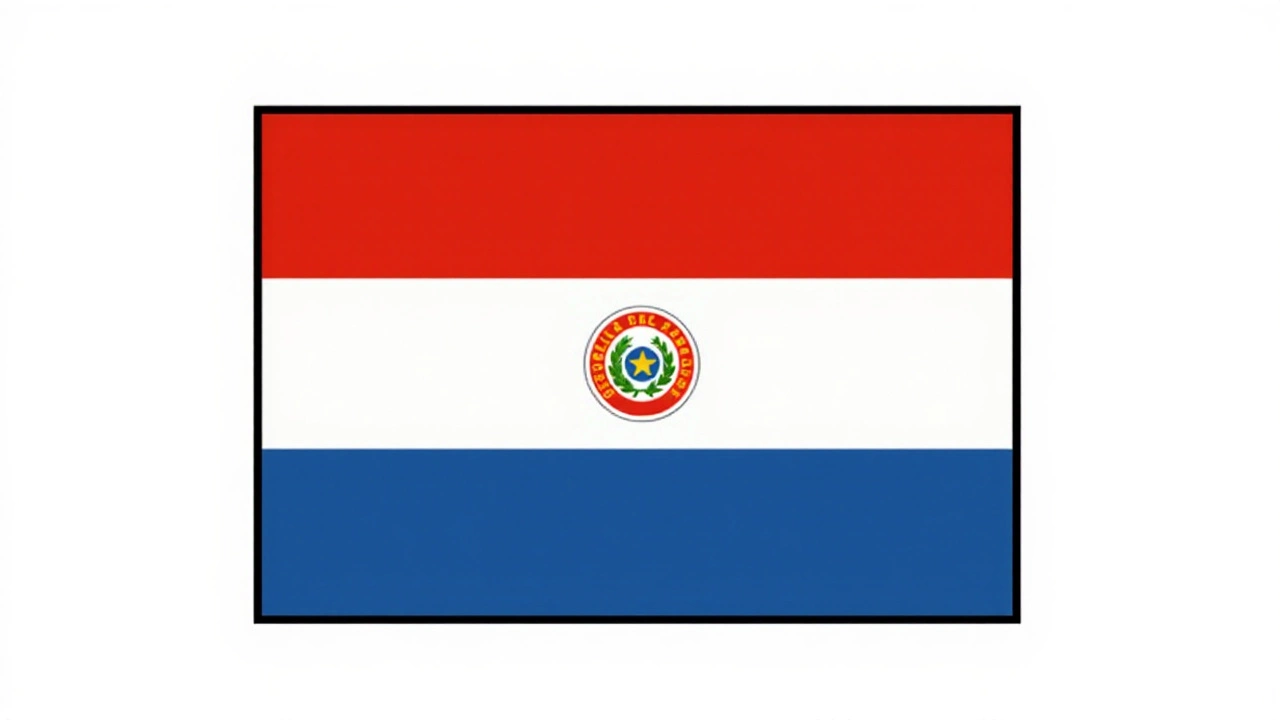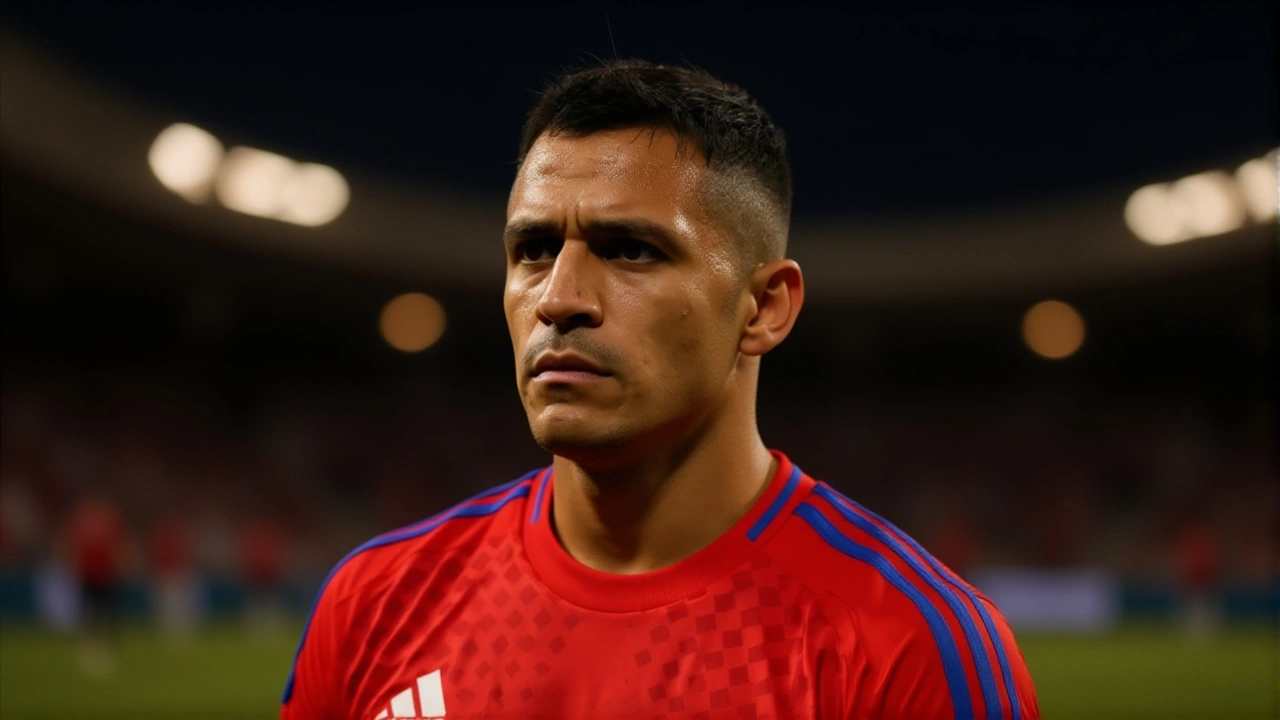When Alexis Sánchez stepped off the pitch after Chile’s 2-0 defeat to Bolivia on November 19, 2024, he didn’t just leave a match—he walked away from an era. At 35, the Chilean legend, who scored 51 goals in 161 international appearances, won’t play against Paraguay in the remaining 2026 FIFA World Cup Qualifiers—not because of injury, but because the team he carried for nearly two decades has officially moved on. Chile’s elimination from World Cup contention, confirmed that night at the 4,150-meter high El Alto Stadium outside La Paz, wasn’t just a loss. It was the quiet burial of a golden generation.
The End of an Era
Chile’s 2026 World Cup qualifying campaign ended in humiliation. With only 7 points from 18 matches, they finished dead last in CONMEBOL’s 10-team round-robin. For context, sixth-place Colombia had 21 points. Bolivia, with 17, and Venezuela, with 18, were still fighting for the final playoff spot. Chile didn’t just lose—they were irrelevant. And Sánchez, the last man standing from the squad that won back-to-back Copa América titles in 2015 and 2016, knew it.
"Sad, I am feeling bad. Never lived something like this," he told reporters after the Bolivia match. "We have to ask people to forgive us. We have to keep working. There’s change already. The golden generation is buried. I am the only one left." That line echoed through football halls from Santiago to São Paulo. Arturo Vidal, Claudio Bravo, Gary Medel—gone. All retired from international duty. Sánchez, once the talisman who carried Chile to global prominence, was now a relic in a team rebuilding from scratch.
A Team in Transition
Since taking over in January 2024, head coach Nicolás Córdova has made one thing clear: the past is over. No more sentimental selections. No more waiting for miracles from aging stars. The Federación de Fútbol de Chile, led by president Pablo Milad, has shifted focus entirely to youth. The remaining qualifiers—against Paraguay on March 20, 2025, and others—are no longer about qualification. They’re auditions.
According to Bolavip, the likely attack without Sánchez will feature 22-year-old Ben Brereton Díaz of SD Tarbes and 24-year-old Víctor Dávila of Pachuca. Both have shown flashes in club football but lack international experience. The message? Chile won’t be remembered for what it was. It’ll be judged by what it becomes.

Why Sánchez Wasn’t Just a Player
He wasn’t just the top scorer. He was the heartbeat. In 2015, his brace against Argentina in the Copa América final sealed Chile’s first major title in 99 years. In 2016, he danced past defenders in the final against Argentina again, lifting the trophy as captain. He played through pain, through criticism, through the weight of a nation’s hope. For nearly 20 years, he was the face of Chilean football.
But football doesn’t wait. Not even for legends. At Udinese Calcio in Italy’s Serie A, he’s still playing—but at 35, with just 8 goals in 52 appearances since 2022, his club career is winding down too. The Chilean federation hasn’t announced his retirement, but sources close to the team say Sánchez himself has made it clear: he won’t return.
The Bigger Picture
Chile’s fall isn’t unique. It’s a warning. Spain, Italy, the Netherlands—once giants—have all faced similar collapses after golden generations retired. The difference? Chile had no plan. While Brazil and Argentina developed youth academies and kept their top talent at home, Chile’s best players left young and never returned to the domestic game. The Estadio Nacional Julio Martínez Prádanos in Santiago now feels empty, not just of fans, but of identity.
And now, with the 2026 World Cup co-hosted by the United States, Mexico, and Canada, Chile won’t even be there to witness the spectacle. The next generation will watch on TV, wondering how it all fell apart.

What’s Next for Chilean Football?
The road back starts now—with youth tournaments, with domestic league investment, with coaches who understand development over results. Córdova’s squad for the Paraguay match will be mostly players under 23. The federation has pledged to overhaul its scouting network. But time is the enemy. The 2030 World Cup, set to be held in Uruguay, Argentina, and Paraguay, is only six years away. Can Chile rebuild fast enough?
Frequently Asked Questions
Why isn’t Alexis Sánchez playing against Paraguay in the 2026 qualifiers?
Sánchez isn’t playing because Chile has already been mathematically eliminated from 2026 World Cup contention after losing to Bolivia on November 19, 2024. Head coach Nicolás Córdova has shifted focus entirely to developing younger players, and Sánchez, at 35 and the last remaining member of Chile’s golden generation, has privately indicated he won’t return to international duty after this qualifying cycle.
What led to Chile’s failure to qualify for the 2026 World Cup?
Chile finished last in CONMEBOL’s 10-team qualifying group with just 7 points from 18 matches, winning only two games all cycle. A lack of consistent attacking output, poor defensive organization, and failure to adapt to younger talent after the retirement of Vidal, Bravo, and Medel contributed to the collapse. Their 2-0 loss to Bolivia at high altitude in El Alto sealed their fate.
Who are the new players being tested in Chile’s remaining qualifiers?
Emerging talents like 22-year-old Ben Brereton Díaz (SD Tarbes) and 24-year-old Víctor Dávila (Pachuca) are expected to lead the attack. Midfielders such as 21-year-old Matías Vecino (on loan from Inter Milan) and 20-year-old goalkeeper Matías Fernández (Colo-Colo) are also in contention. These players represent Chile’s next generation, but none have yet proven themselves at the international level.
Has Alexis Sánchez officially retired from international football?
No official retirement announcement has been made by the Chile Football Federation. However, multiple sources confirm Sánchez has privately communicated his intention to step away after the elimination. With no World Cup to fight for and a clear rebuild underway, his absence from the Paraguay match is widely seen as his farewell.
How does Chile’s situation compare to other South American teams?
While Brazil and Argentina are still dominant, teams like Uruguay and Colombia have managed smoother transitions by investing in youth academies and keeping talent in domestic leagues longer. Chile’s failure stems from neglecting its domestic structure and over-relying on aging stars. Other nations learned from their own golden generations’ retirements—Chile didn’t.
What’s at stake for Chile in the remaining qualifiers?
Nothing in terms of World Cup qualification. But for the players, it’s about pride, experience, and proving they belong at the next level. For the federation, it’s a chance to evaluate talent ahead of the 2030 World Cup cycle. The matches are now scouting missions—not contests for glory.
